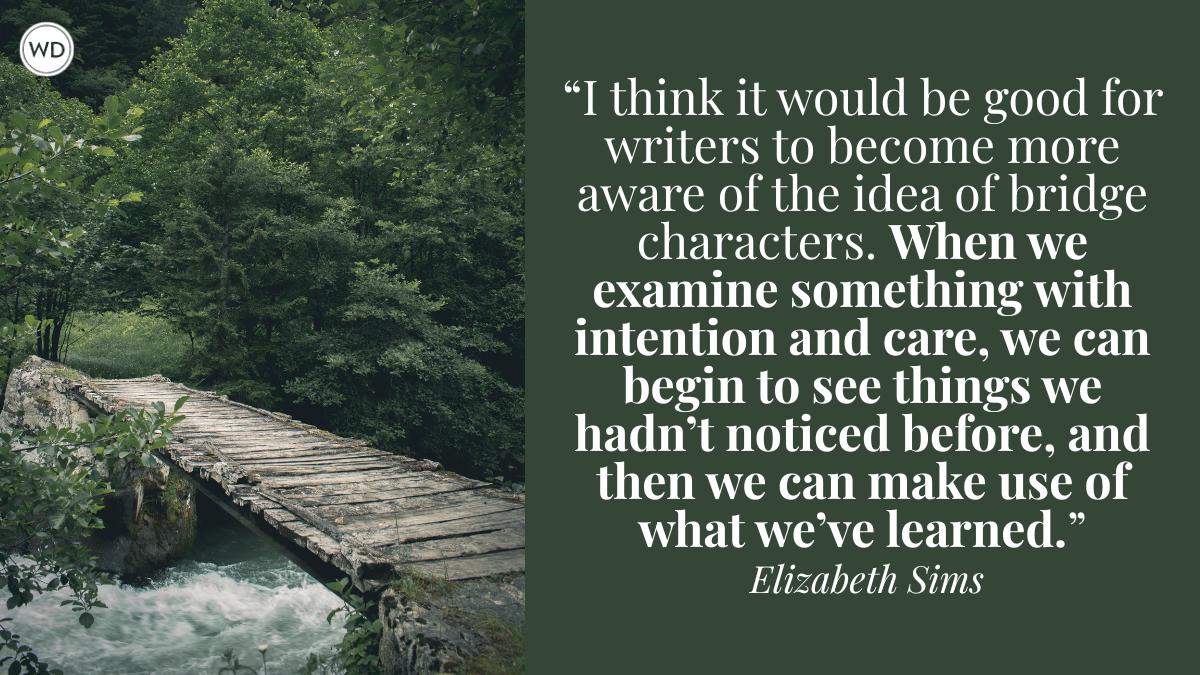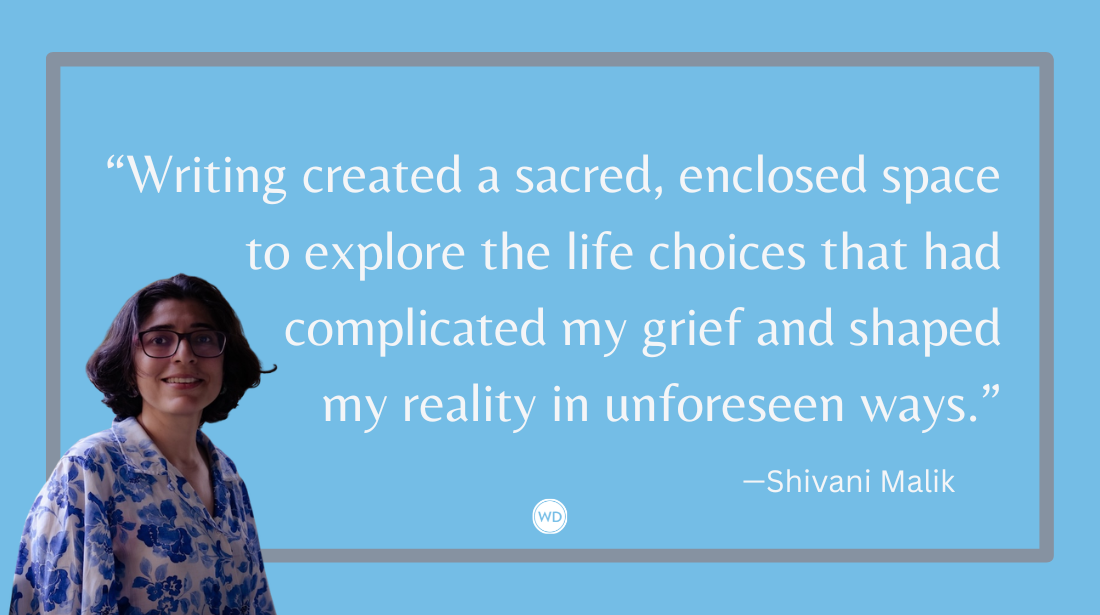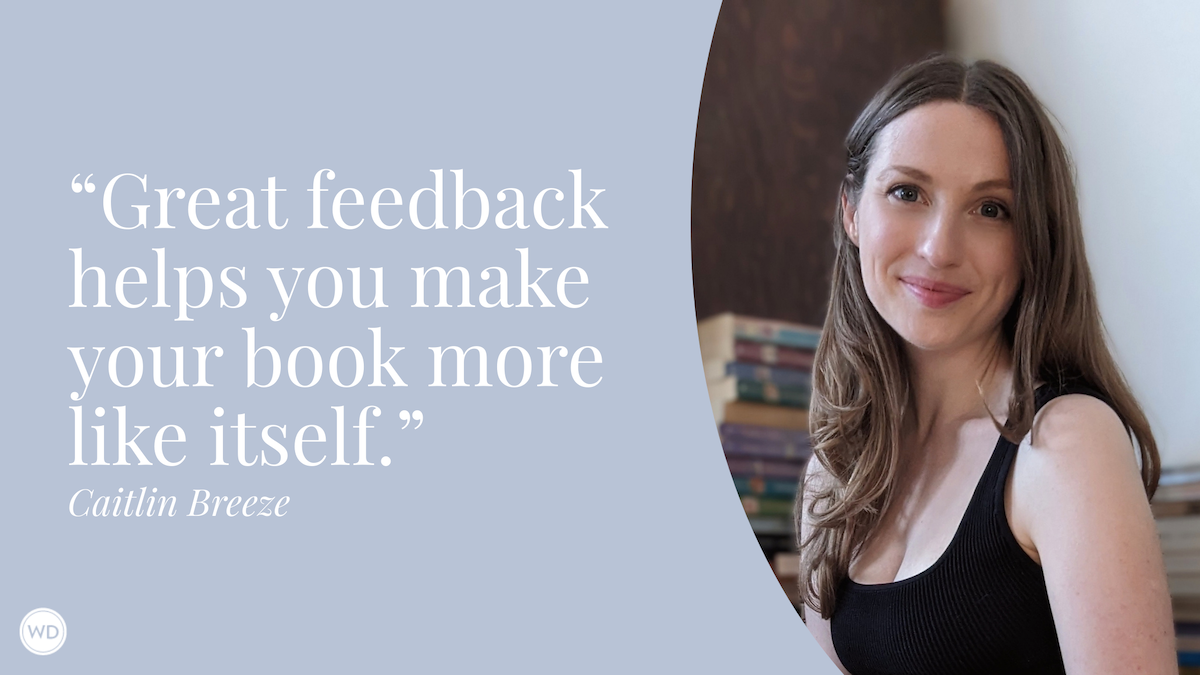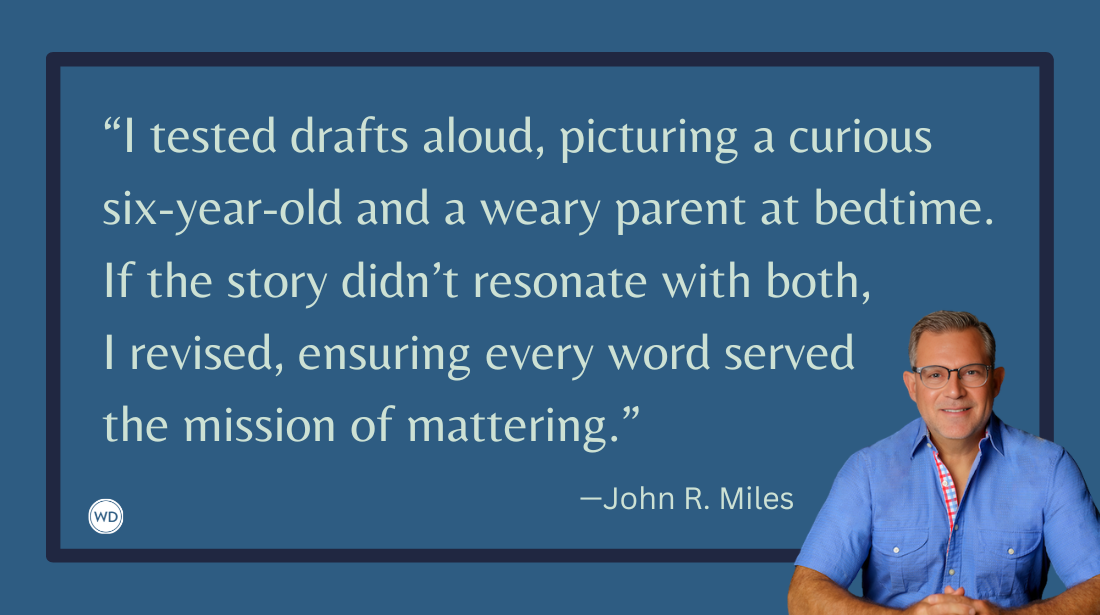4 Essential Steps to Making Your Protagonist Real, Even When They’re Nothing Like You
Writing your protagonist always requires deep thought and consideration, but crafting believable, realistic protagonists who are nothing like you presents unique challenges. Author Donna Levin offers four essential tips to help you work through these challenges.
Most of us, when we start writing fiction, start with a main character who is much like ourselves. It’s natural: the impulse to write often comes from our desire to channel our own experiences and emotions into a story so that everyone can know how we feel.
It’s not only natural, it’s easy. I’ve heard it said, in fact, that all the important characters in a novel represent some part of the novelist herself.
As they say in appellate court decisions, though, “we need not reach that question.” We’re gathered here to discuss how it is one creates a believable character who is nothing like you. Because we want to go beyond what’s easy.
Here are four essential steps for creating a protagonist who is nothing like you, but still very real.
Order a copy of Victoria Lynn Schmidt's 45 Master Characters: Mythic Models for Creating Original Characters.
1. Recognize That “Nothing Human is Alien to Me”
This statement is variously attributed, but thanks to the Internet, All-Knowing and All-Wise, we know that it was first said by Publius Terentius Afer, commonly known as Terence, a Roman playwright. After 2,000 years the statement is safely in the public domain, but he does deserve the credit. More to the point, it’s true. And it’s something that we know intuitively. We’ve all felt rage, guilt, pity, adoration, shame.
There’s a paradox here: I’ve said you want to create a character who is nothing like you, and now I’m saying that everyone is like you. We can resolve this by postulating that our conscious minds represent only a small part of who we are. As socialized animals we’ve spent our lives training ourselves to ignore the impulse to walk out of a store with a new iPhone tucked into the waistband of our jeans.
Yet there remain vast, unexplored territories within us wherein lie our understanding of how a mother abandons her children or a man becomes a serial killer. (What I’d really like to know is why people like to read about serial killers so much, but that goes beyond the scope of this essay.)
I recently overheard someone say that she couldn’t understand why people became homeless. But a novelist needs to be able to suspend the judgment she uses in daily life. A writer needs to understand why.
Who believes that Zeus is in charge of thunderbolts? Well, somebody did once upon a time and if your protagonist is an ancient Greek warrior you’d better get out of judgment mode and into his (let’s face it, it was probably a “he”) head. Put yourself in the mind of a person who does not know what we do about how frozen raindrops bump up against each other to create an electric charge. Then you see a lightning strike. What’s a good explanation?
Be brave in the service of your fiction. Writing about a shoplifter won’t make you a shoplifter. Venture to the very edge of the abyss: It’s easier to pull back on an extreme character than to make a character more extreme. You may also be surprised on how little you need to pull back.
Understanding other humans isn’t just about going over to the dark side. It can be equally difficult (especially for some of us) to get in touch with our nobler impulses. What inspires a woman become a nun, a man become a monk? A lawyer to work pro bono?
I hate drama in my personal life. I like routine; I avoid arguments; I don’t spend time with people I don’t like. But in a novel, these qualities make for a really dull character. Fictional characters need to be more driven, obsessed, and passionate than real people. Think Captain Ahab. Would you want him to join your chapter of the PTA? Think Dmitri Karamazov. Would you swipe right if you saw his Tinder profile?
When you’re up against the wall of your own judgment, and what Terence said isn’t enough, remember that the greatest tool a writer of fiction has is her imagination. Do you love chocolate? Imagine why you might not like chocolate: It’s sticky. It gives you a sugar rush, but then a sugar crash. Are you afraid to fly? Imagine the excitement someone feels when 100 tons of metal leaves the runway and ascends into the sky.
2. Develop Your Character Through Backstory
I find backstory crucial to the development of any character, but when you are creating a character who is significantly different from you, it plays a double role. Not only will you discover the key events and situations of this character’s life that shaped her, but that backstory will launch you in a direction away from yourself.
Obviously, you want to give your protagonist a very different history from your own. If feasible, let him grow up in another part of the country, or another part of the world. The values of our milieus affect us more than we want to know: That was why Scarlett O’Hara didn’t think that owning slaves was the abomination that it was. Or why a Jane Austen heroine had to get married at the end. Why Anna Karenina had to throw herself in front of a train. If your character had an overprotective mother, or an alcoholic father, how would that affect him or her? Did she get a law degree at Harvard or drop out of high school?
There’s no formula for how circumstances will shape someone’s personality in real life, let alone in fiction. You won’t be judged by a team of psychologists if you decide that growing up rich gave your heroine the freedom to pursue her music, instead of making her spoiled and lazy. Either way, knowing about her past will help you both distance yourself from and zero in on who your protagonist is.
Sometimes backstory will become an essential part of your current story. In the movie Monster, the biopic of Aileen Wuornos, the screenwriter dramatized an attack on Aileen, who then has to kill in self-defense. I won’t speak to the accuracy of this depiction, but in the context of the movie it makes Aileen surprisingly sympathetic, at least until she kills a man who only wants to help her.
However, most of the time this backstory is just for you. It can be tempting, after you’ve written fascinating details about a character’s earlier life, to justify its inclusion in your novel. It’s so hard to throw away good writing. Do it anyway.
Order a copy of Donna Levin's He Could Be Another Bill Gates today.
Bookshop | Amazon
[WD uses affiliate links.]
3. Focus on Distinctive Physical Traits
Wouldn’t it be nice to live in a world where our appearance didn’t matter?
We don’t.
Studies show that the taller a man is, the more money he’s likely to earn. I don’t like to give immediate credence to any study I see, but it’s believable enough as a general rule. Look around any café: what assumptions are you making about the people you see—the woman with the walker, vs the woman with a terrier poking its head out of her purse? And then, how might you challenge those assumptions?
Height, build, and coloring are the easy and obvious aspects of physical description. But don’t stop there. God is in the details: the tattoo; the French manicure; the short upper lip; the one ear that’s slightly higher than the other. Big feet.
From this description, once clear in your head, you can imagine so much more of your protagonist’s inner life. A short, plump woman is going to have a tougher time becoming a ballerina. (Doesn’t mean that she won’t try, and there’s a story there.) And how might Cyrano de Bergerac’s life have been different had he had access to a good plastic surgeon? Much of what’s physical isn’t immediately visible. Allergies? The kind of hand-eye coordination that makes a good tennis player?
Don’t forget age. Not only is the appearance of a 25-year-old different from that of a 40-year-old or a 60-year-old, but their goals, hopes and fears are very different as well.
4. Have a Friend Read an Interim Draft
That may seem a tad obvious, because we all need feedback on our work. But there’s a crucial distinction here.
I strongly discourage writers from sharing their work with friends and family until it’s finished. Even the most well-meaning of those potential readers can’t give you much help, simply because they do know you too well. And even if they’re avid readers, unless they’re also writers and/or editors themselves, they can’t give you technical assistance, such as identifying lapses in point of view or (sadly, all too often) distinguishing between the correct use of “lie” and “lay.”
Rather, although they may not be conscious of it, these good people want to read your work because they’re curious about this “writing a novel” thing you’ve been talking about (and that they may have been thinking about, but haven’t yet tried).
They also want to see if you’ve based a character on them. This is a no-win situation. If they don’t see themselves, they’ll be disappointed. If they do, they’ll still be disappointed, because you won’t have described that character as the wise and generous mentor, or always-there-for-you pal they see themselves as, but rather as a cranky boss or a self-absorbed friend.
Having said all that, if you want feedback on this one aspect of your work—that you’ve created a protagonist who is nothing like you—show a draft to someone who knows you and say, “I only want feedback on whether my main character is different from me.” Or be a little disingenuous and say, “I based this character on myself,” and see what their response is. I do know a few writers who say that their partners are their most astute and reliable critics. So, no hate mail on this issue, please.
I’ve thrown a lot of ideas at you. You don’t need to use them all. Use what’s helpful; ignore the rest. Which is a good rule to follow regarding anything you read on the craft of writing.
If I do say so myself.
Writersdigest.com is a participant in the Amazon Services LLC Associates Program, an affiliate advertising program designed to provide a means for sites to earn advertising fees by advertising and linking to Amazon.com and affiliated websites.
Donna Levin is the author of There’s More Than One Way Home, a best-selling “autism lit” novel that Booklist gave a starred review, California Street and Extraordinary Means, as well as two non-fiction writing advice books. She taught fiction writing for two decades, most notably at the University of California Extension at Berkeley. Donna has also been a frequent guest at writers’ conferences, including the San Francisco Writers’ Conference and the Squaw Valley Community of Writers. For many years she was a freelance book reviewer for the San Francisco Chronicle and a columnist for the San Francisco Independent. Donna’s work is included in Boston University’s 20th Century Archives and in the California State Library’s collection of California novels. She lives in San Francisco. Find her books on Amazon,Barnes & Noble and IndieBound.









